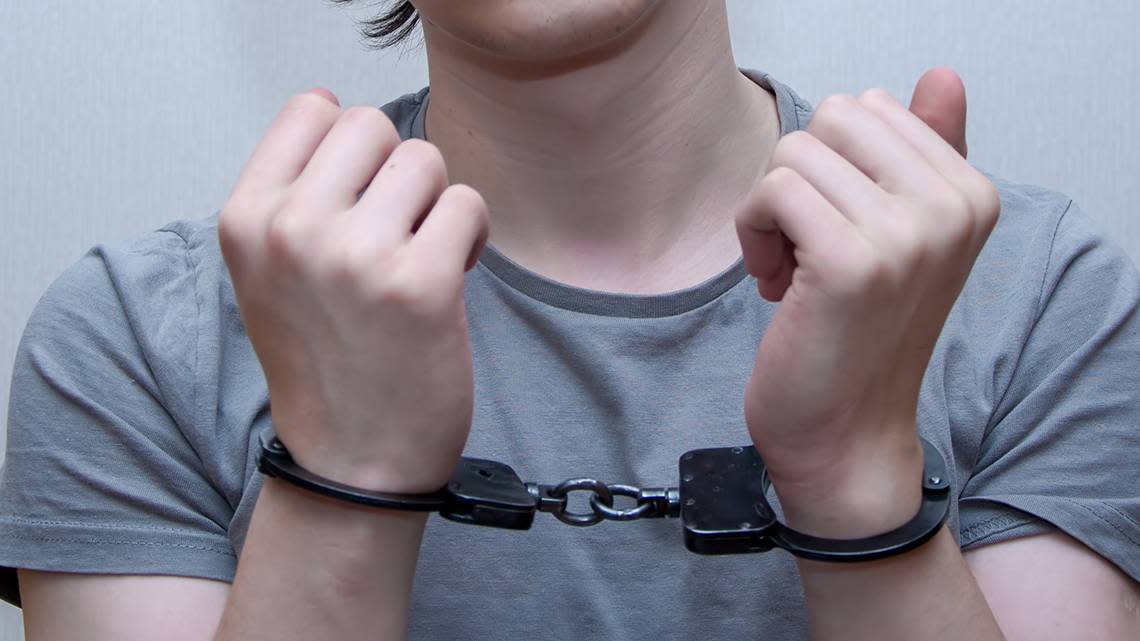The cycle of crime and poverty traps juvenile offenders. Kansas can help | Opinion

Recently, the Kansas Legislature introduced House Bill 2568, which would end the practice of assessing fees and fines to people moving through the state’s juvenile justice system. As I know firsthand from my own experiences when I was locked up at the age of 10 for stealing, this is a reform that could prevent the cycle of poverty and incarceration that traps too many youth offenders.
Shampaine Muldrow, who is 22, bears the heavy weight of a double impact, having been in both the Kansas foster care and juvenile justice systems since the age of 12. Her journey led her through secured facilities and eventually to the Juvenile Correctional Complex in Topeka, where the system’s punitive financial practices only compounded the challenges she faced.
Shampaine’s experience in the system was marked by a series of placements in different facilities, often finding herself in secured care or confined to juvenile detention because she was classified as a “flight risk.” Her encounters with incarceration as a youth were primarily for minor misdemeanors and instances of running away from home. Despite her status as a foster care youth facing homelessness, each stint in juvenile detention held her financially accountable for fines and fees, further exacerbating her precarious situation.
Recalling her time in the correctional facility, Shampaine vividly recounts the absence of family support to alleviate the financial burdens placed upon her. From expenses such as fines and fees, phone calls and basic necessities, she faced the daunting challenge of meeting her needs without any assistance. The system’s financial strain continued to haunt her into adulthood, leaving her with a suspended licensebecause of $750 in unpaid fines and fees — a debt insurmountable to her.
Now a parent herself, Shampaine grapples with the relentless obstacles posed by the system, which refuses to release its grip until her outstanding fines and fees are settled. The lack of proper transportation amplifies her struggles, hindering her ability to provide for her son and navigate day-to-day life effectively.
Shampaine passionately advocates for the elimination of fines and fees for juveniles, viewing it as a liberating opportunity to explore resources that could empower her to secure transportation, food and essential supplies for her family. Her call for justice echoes the sentiment that no child should bear the burden of double taxation, especially within a system that claims to support and rehabilitate young people, funded by taxpayer dollars.
In a poignant critique, Shampaine emphasizes the irony of a system that purportedly aims to uplift youths while simultaneously subjecting them to financial hardships. Her story serves as a compelling testament to the critical need for reform, urging us to reevaluate the punitive financial practices that hinder the growth and potential of those already navigating the challenging terrain of the foster care and juvenile justice systems.
It is time to break the chains of double taxation and forge a path toward a more equitable and compassionate approach to juvenile justice. Passing this legislation and its companion Senate Bill 416 to end the practice of assessing harmful fees and fines on juveniles is the first step in relieving some of the harm that young people and families face. Families in Kansas and our young people deserve this.
Nykia Gatson is executive director of Sacrifice For Liberation Inc., a 501(c)(3) nonprofit based in Wichita.


